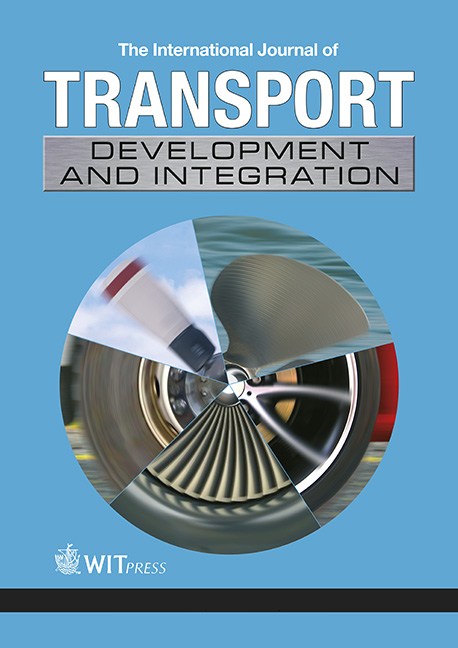FAILURES OF INTERACTION BETWEEN POWERED TWO-WHEELER RIDERS AND CAR DRIVERS IN URBAN ACCIDENTS
Price
Free (open access)
Volume
Volume 1 (2017), Issue 2
Pages
9
Page Range
235 - 244
Paper DOI
10.2495/TDI-V1-N2-235-244
Copyright
WIT Press
Author(s)
P. VAN ELSLANDE & J.-Y. FOURNIER
Abstract
The users of powered two-wheeler (PTW) are facing everywhere in the world a road risk significantly higher than car users, especially in towns. This is particularly the case in France, where the risk of death per kilometre travelled for two-wheeler rider is over 20 times that of motorists. This risk is linked to the intrinsic vulnerability of these road users due to a lack of protection by a coachwork, but it also highlights some accidents configurations that deserve to be analysed in depth to understand their mechanisms and factors, and to set countermeasures. The present paper is based on the results of a previous comparative analysis of accidents involving PTWs occurred in urban and extra-urban areas, to understand in more detail the specific problems generated by urban traffic situations. It aims to deepen the question of the interactions that take place between the driving failures of the protagonists (notably PTW riders and car drivers) involved in urban accidents. 565 accident cases of this type are examined in more detail. The study of these accidents shows a strong interaction between the anticipation failure by the rider and a perception failure by the car driver. The process of this interaction consists in the car drivers being surprised by the presence and/or an unexpected behaviour of the PTW driver; and in return the manoeuvre undertaken by the car driver misleads the expectations of the PTW driver who was sure to have been seen. Solutions to this critical malfunction scenario are thought to be found in training and communication of different road user, and in an urban road network that offers greater visibility and predictability of behaviour.
Keywords
accident, anticipation, human error, motorcycling, perception, powered two-wheeler, traffic safety




